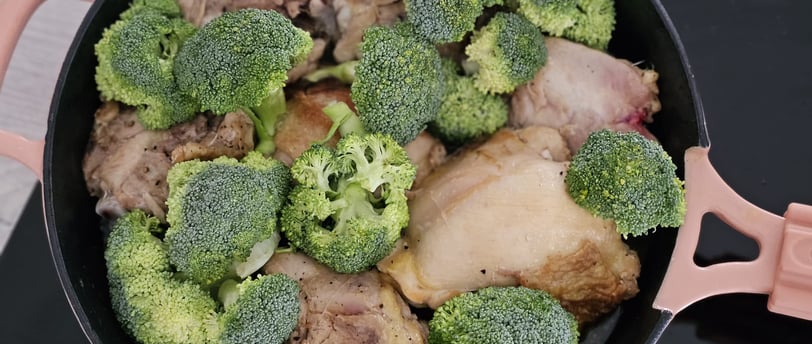Cooking with Cold-Pressed Extra Virgin Olive Oil
LEARN ABOUT EXTRA VIRGIN OLIVE OIL
3 min read


Introduction:
Extra Virgin Olive Oil (EVOO) has long been cherished for its distinct flavour, health benefits, and versatility in the kitchen. However, a common question lingers in the culinary world – can you cook with cold-pressed extra virgin olive oil? In this article, we dive into the intricacies of using cold-pressed EVOO for cooking and unravel the fascinating process that makes most extra virgin olive oils inherently cold pressed.
Understanding Cold Pressing:
Before delving into the cooking aspect, it's crucial to understand what cold pressing entails. Cold pressing is an extraction method that involves mechanically pressing olives to extract the oil without the use of heat or chemicals. This method aims to preserve the oil's natural flavours, aromas, and beneficial compounds.
Cooking with Cold-Pressed Extra Virgin Olive Oil:
1. Flavour Preservation:
Cold-pressed extra virgin olive oil is celebrated for its robust and fruity flavours. When used in cooking, these flavours can enhance the taste of a variety of dishes, from sautéed vegetables to grilled meats.
2. Low to Medium Heat Applications:
Cold-pressed EVOO has a lower smoke point compared to some other cooking oils. It is best suited for low to medium heat applications, such as sautéing, roasting, and drizzling over finished dishes.
3. Finishing Touch:
Consider using cold-pressed extra virgin olive oil as a finishing touch for salads, pastas, and other dishes. Its vibrant flavour profile adds a delightful complexity to your creations.
Why Most EVOOs Are Cold Pressed:
1. Preserving Quality:
The cold pressing method is favoured in the production of extra virgin olive oil because it helps preserve the oil's quality, ensuring it retains its natural antioxidants and beneficial compounds.
2. Maintaining Nutrient Integrity:
Cold pressing minimises heat exposure during extraction, preserving the oil's nutritional integrity. The resulting EVOO is rich in monounsaturated fats and polyphenols, contributing to heart health and antioxidant properties.
3. Legal Definition of EVOO:
To be classified as extra virgin, olive oil must meet certain standards, including being cold-pressed. This ensures that the oil maintains its purity and premium quality.
Choosing the Right Cold-Pressed EVOO:
1. Look for Quality Certification:
Opt for EVOOs with certifications like "Cold-Pressed" or "First Cold Press" on the label. These designations indicate that the oil has undergone the cold pressing process.
2. Check for Harvest Date:
Freshness matters. Check for the harvest date on the bottle to ensure you are getting a recently pressed and high-quality extra virgin olive oil.
Cold Pressed EVOO Characteristics
Temperature Limit:
While there isn't a universally defined temperature for cold pressing, the extraction process typically occurs at temperatures below 27°C (80°F). This ensures that the olives are not exposed to excessive heat, preserving the oil's quality.
Mechanical Extraction:
Cold-pressed olive oil is produced using mechanical methods, such as hydraulic presses or centrifugation, rather than chemical processes. This mechanical extraction helps retain the natural characteristics of the olives.
First Cold Press:
Some olive oils may carry the label "First Cold Press" or similar wording. This indicates that the oil comes from the first pressing of the olives, further emphasizing the use of mechanical methods without the application of heat.
Quality Certifications:
Look for quality certifications on the olive oil bottle, such as the "Extra Virgin" designation. To be classified as extra virgin, olive oil must meet specific quality standards, including the use of mechanical extraction methods.
Harvest Timing:
The timing of the olive harvest can also impact the cold-pressed designation. Olives harvested earlier in the season often produce oils with more pronounced flavours and higher polyphenol content.
Regional Regulations:
Different olive oil-producing regions may have their own standards and certifications related to cold pressing. For example, the European Union has regulations governing the production and labeling of olive oil.
Conclusion:
In conclusion, cooking with cold-pressed extra virgin olive oil is not only possible but also a delicious way to enhance your culinary creations. Understanding the cold pressing process and selecting high-quality EVOOs ensures that you enjoy the full spectrum of flavours and health benefits this liquid gold has to offer. So, the next time you reach for that bottle of extra virgin olive oil in your kitchen, savor the thought that you are not just cooking; you are crafting a culinary masterpiece with the finest, cold-pressed elixir.
